Abstract
Corynebacterium parvum, a Gram-positive anaerobic bacillus thought to be a strong immunological stimulant, has been shown to decrease tumour growth and prolong survival in patients with metastatic disease. Study of the effect of a single injection of a strain of C. parvum (CN. 6134) in six patients with stage IV metastatic breast cancer is reported. Results of laboratory tests to judge the physical and immunological effects of the drug infusion 24 hr post-treatment and weekly thereafter for 3 weeks are evaluated. Within 24 hr after C. parvum administration, most patients experienced fever and nausea. Blood counts and differential counts exhibited increased values 24 hr after treatment with a strong shift to the left. Lymphocyte and monocyte counts were greatly depressed at 24 hr. T-cell numbers in peripheral blood did not appear to be altered, but the picture with regard to B cells was less clear. Normal count was recovered by day 8. It appears that intravenous administration of C. parvum produces a temporary marked immunological depression which returns to essentially normal values in 8 days. The return to normal may be accompanied by resolution of the endotoxin-like syndrome of side-effects. Further study of patients receiving this therapeutic agent is important to detect enhancement of the anti-tumour immunological response precipitated.
Full text
PDF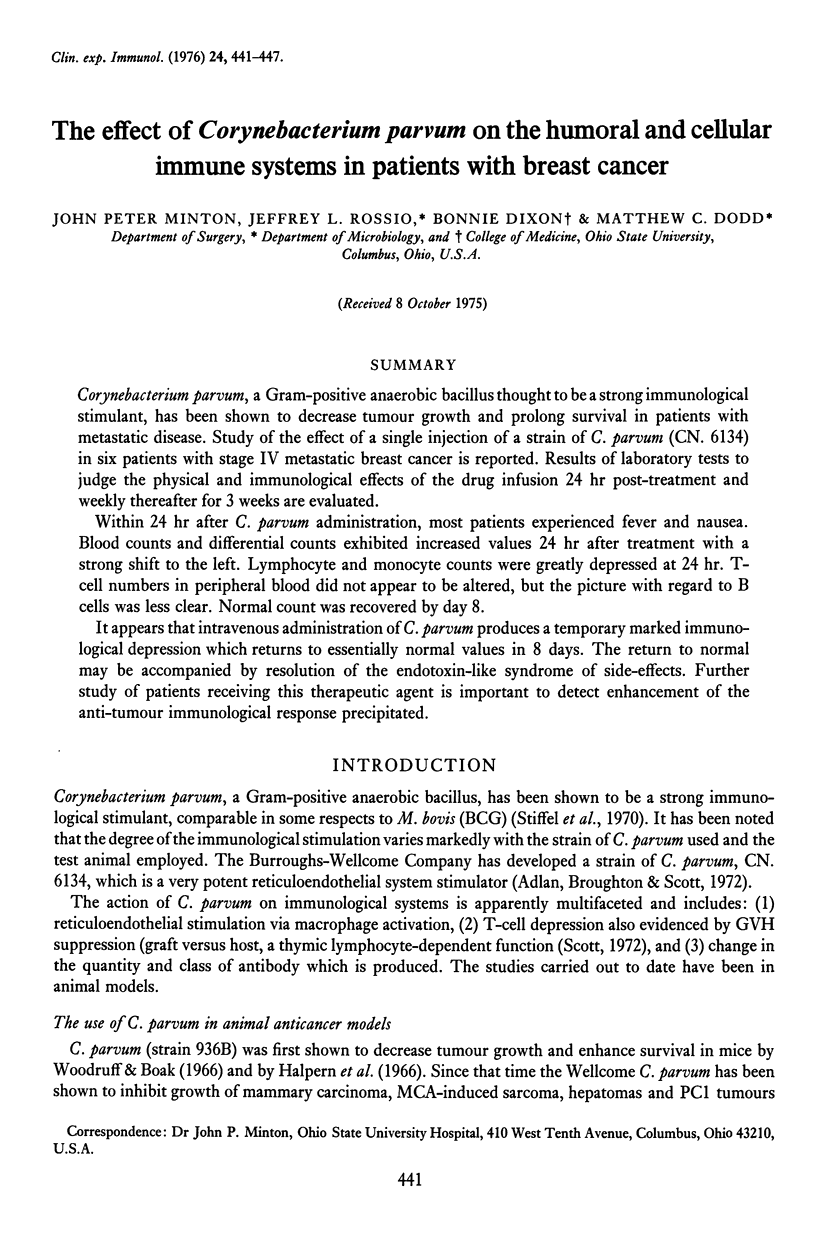
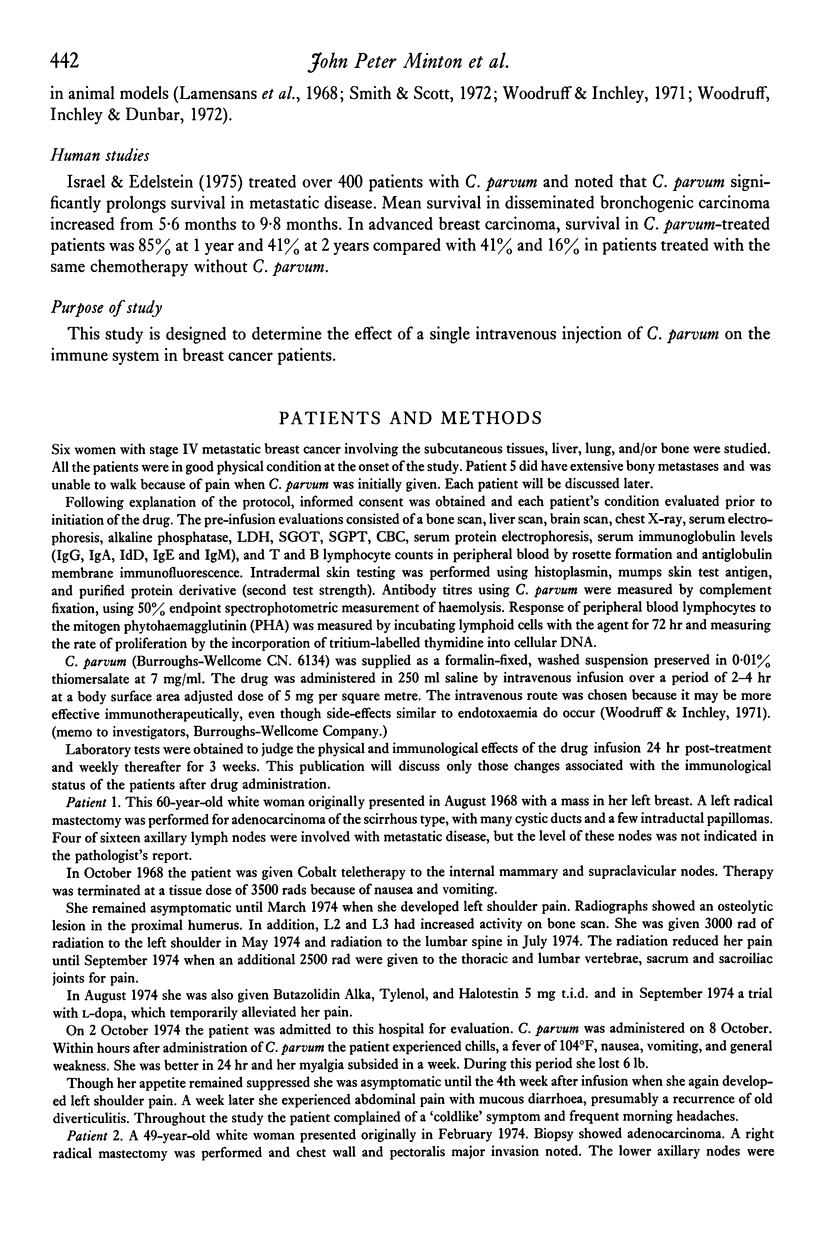
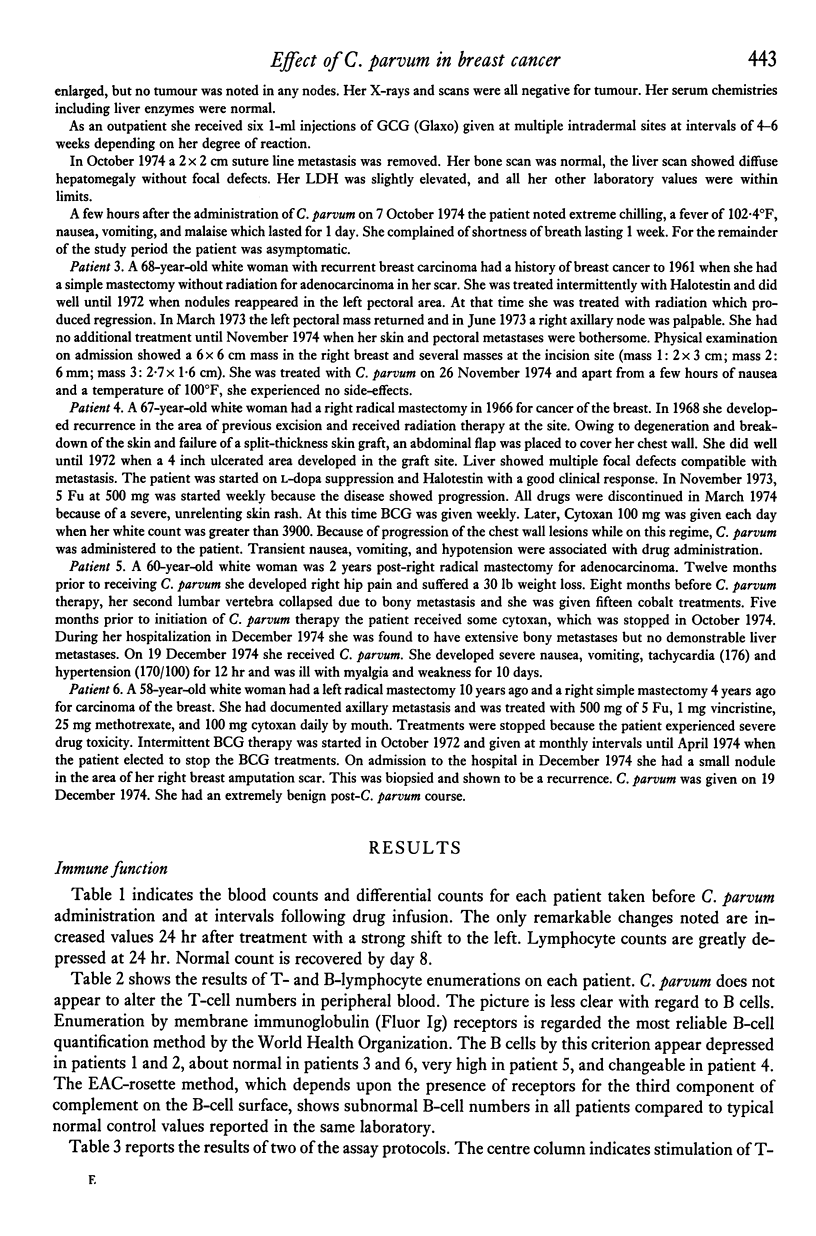
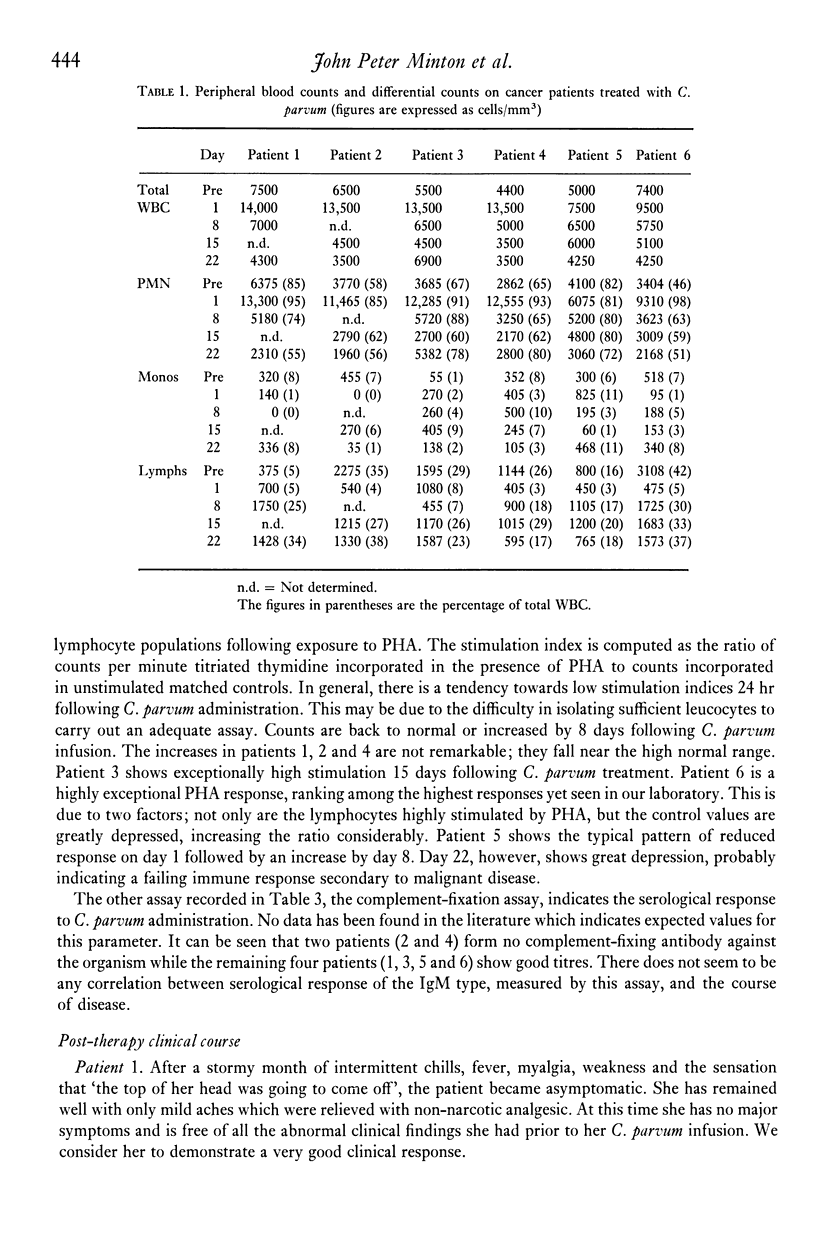
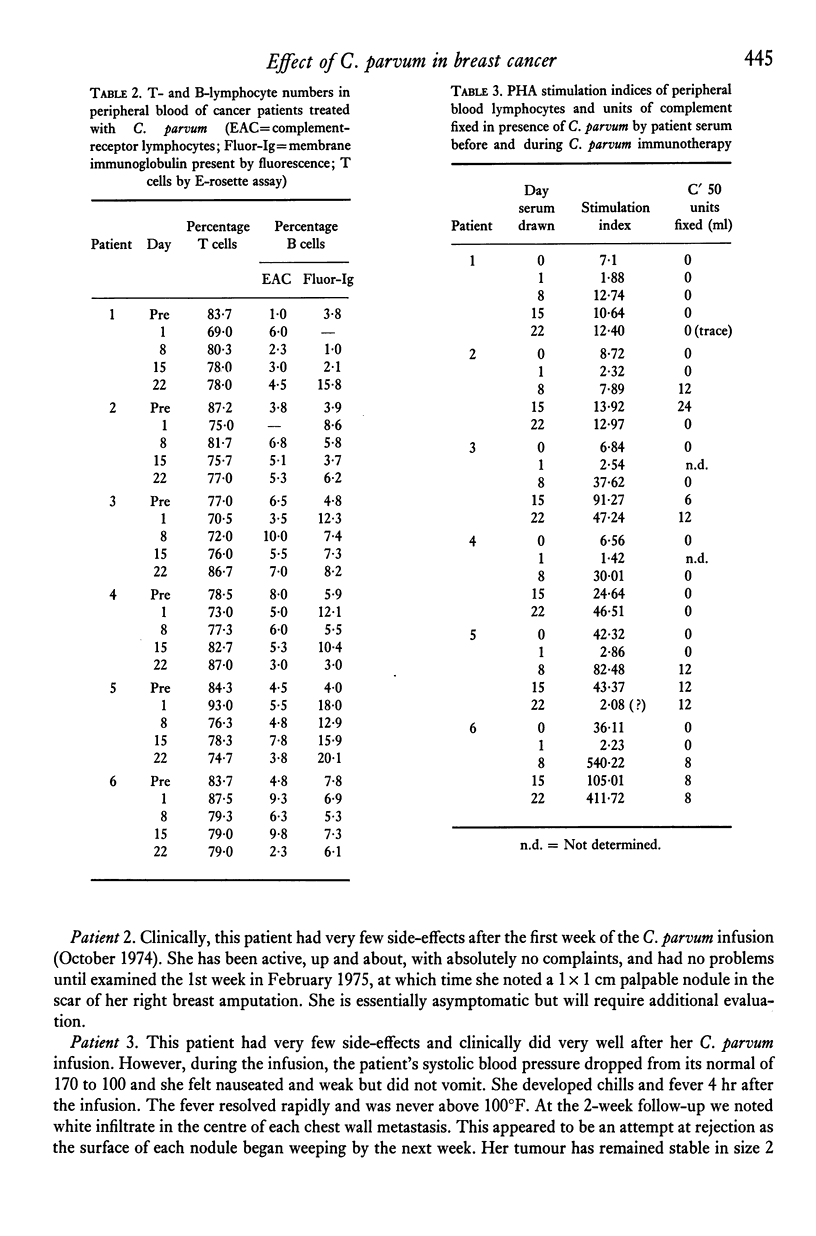
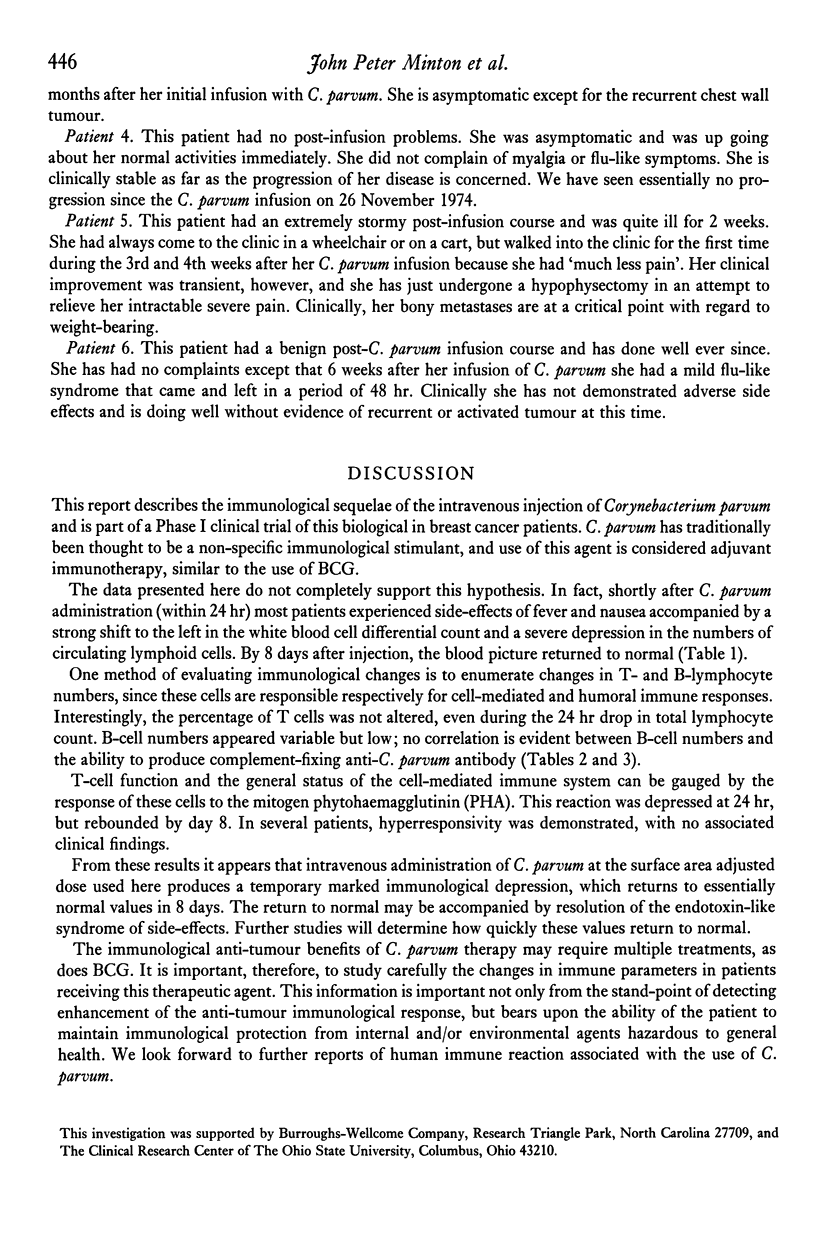
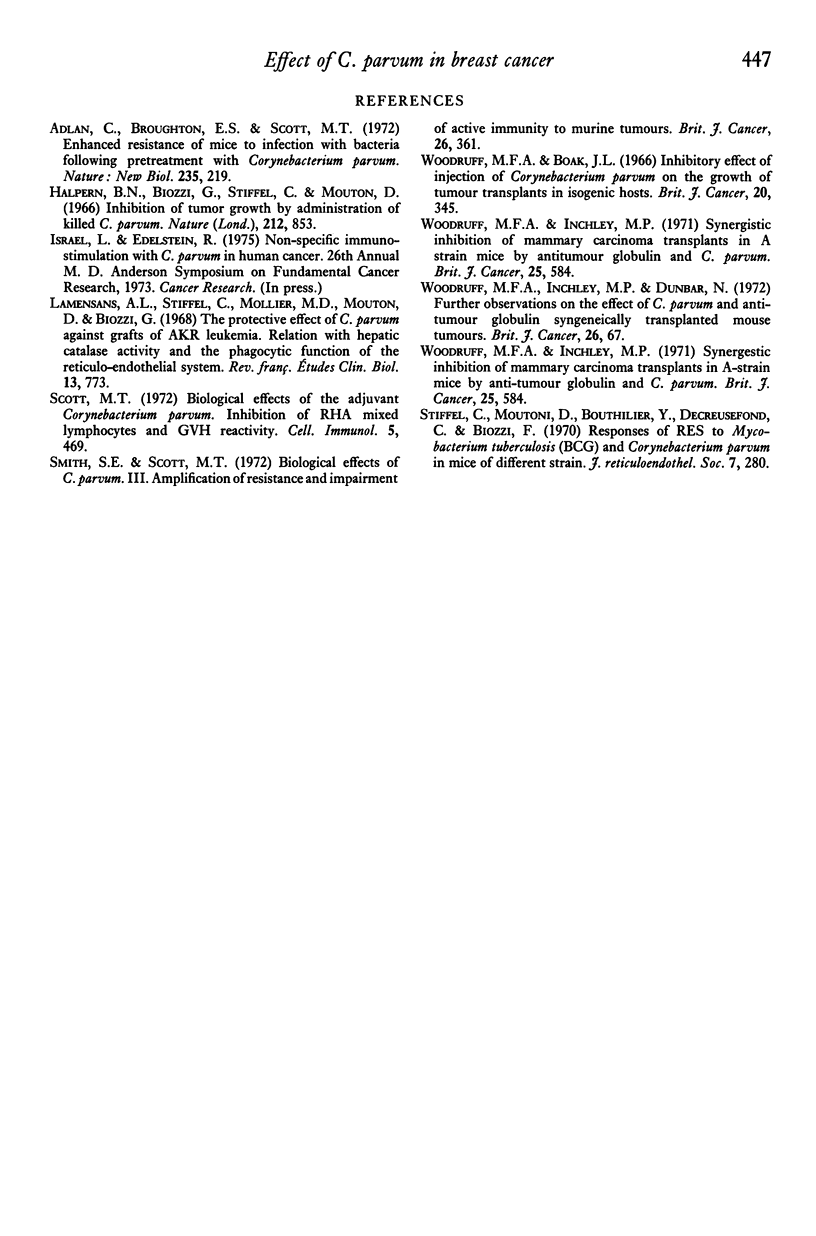
Selected References
These references are in PubMed. This may not be the complete list of references from this article.
- Adlam C., Broughton E. S., Scott M. T. Enhanced resistance of mice to infection with bacteria following pre-treatment with Corynebacterium parvum. Nat New Biol. 1972 Feb 16;235(59):219–220. doi: 10.1038/newbio235219a0. [DOI] [PubMed] [Google Scholar]
- Halpern B. N., Biozzi G., Stiffel C., Mouton D. Inhibition of tumour growth by administration of killed corynebacterium parvum. Nature. 1966 Nov 19;212(5064):853–854. doi: 10.1038/212853a0. [DOI] [PubMed] [Google Scholar]
- Lamensans A., Stiffel C., Mollier M. F., Laurent M., Mouton D., Biozzi G. Effet protecteur de corynebacterium parvum contre la leucémie greffée AKR. Relations avec l'activitè catalasique hépatique et la fonction phagocytaire du système réticulo-endothélial. Rev Fr Etud Clin Biol. 1968 Oct;13(8):773–779. [PubMed] [Google Scholar]
- Scott M. T. Biological effects of the adjuvant Corynebacterium parvum. II. Evidence for macrophage-T-cell interaction. Cell Immunol. 1972 Nov;5(3):469–479. doi: 10.1016/0008-8749(72)90073-1. [DOI] [PubMed] [Google Scholar]
- Smith S. E., Scott M. T. Biological effects of Corynebacterium parvum. 3. Amplification of resistance and impairment of active immunity to murine tumours. Br J Cancer. 1972 Oct;26(5):361–367. doi: 10.1038/bjc.1972.47. [DOI] [PMC free article] [PubMed] [Google Scholar]
- Stiffel C., Mouton D., Bouthillier Y., Decreusefond C., Biozzi G. Réponse du SRE au Mycobacterium tuberculosis (BCG) et au Corynebacterium parvum chez des souris de différentes lignées. J Reticuloendothel Soc. 1970 Feb;7(2):280–293. [PubMed] [Google Scholar]
- Woodruff M. F., Boak J. L. Inhibitory effect of injection of Corynebacterium parvum on the growth of tumour transplants in isogenic hosts. Br J Cancer. 1966 Jun;20(2):345–355. doi: 10.1038/bjc.1966.42. [DOI] [PMC free article] [PubMed] [Google Scholar]
- Woodruff M. F., Inchley M. P., Dunbar N. Further observations on the effect of C. parvum and anti-tumour globulin on syngeneically transplanted mouse tumours. Br J Cancer. 1972 Apr;26(2):67–76. doi: 10.1038/bjc.1972.11. [DOI] [PMC free article] [PubMed] [Google Scholar]
- Woodruff M. F., Inchley M. P. Synergistic inhibition of mammary carcinoma transplants in A-strain mice by antitumour globulin and C. parvum. Br J Cancer. 1971 Sep;25(3):584–593. doi: 10.1038/bjc.1971.74. [DOI] [PMC free article] [PubMed] [Google Scholar]
- Woodruff M. F., Inchley M. P. Synergistic inhibition of mammary carcinoma transplants in A-strain mice by antitumour globulin and C. parvum. Br J Cancer. 1971 Sep;25(3):584–593. doi: 10.1038/bjc.1971.74. [DOI] [PMC free article] [PubMed] [Google Scholar]


